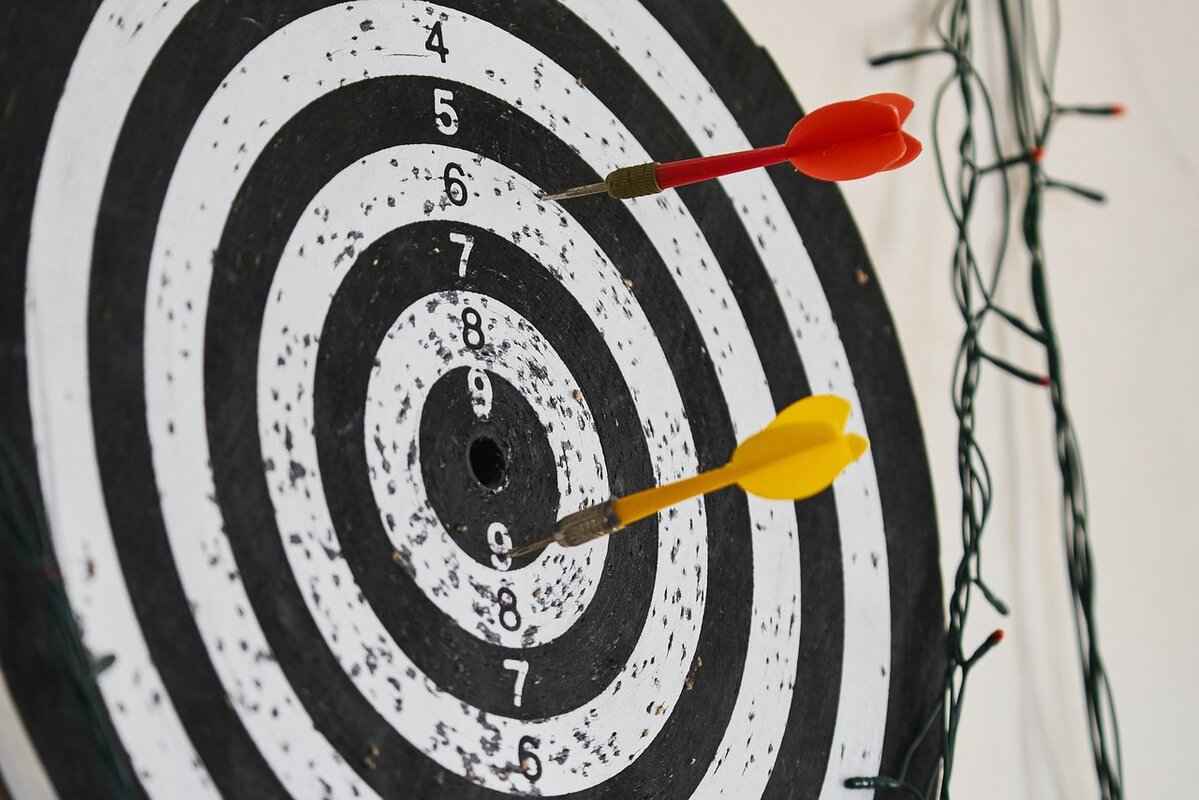Tottenham Hotspur and Arsenal FC share one of the most intense rivalries in football, known as the North London Derby. This fierce competition is not merely about points on the league table; it encompasses a rich history, passionate fans, and cultural significance that resonates deeply within the local community and beyond. The rivalry’s roots can be traced back over a century, with both clubs vying for supremacy in a city that breathes football.
The origins of the Tottenham vs Arsenal rivalry date back to 1887 when Arsenal was formed in South London and later moved to North London in 1913. This relocation intensified the competition, as both clubs began to vie for the same fanbase and local pride. Key events, such as Arsenal’s promotion to the First Division in 1919, further fueled tensions, as Tottenham fans felt slighted by the circumstances surrounding Arsenal’s rise.
Throughout the years, numerous matches have etched themselves into the memories of fans. One of the most notable encounters was the 2004 match where Arsenal secured a 2-2 draw, maintaining their unbeaten run throughout the entire league season. Such matches not only highlight the competitive spirit but also showcase the emotional rollercoaster that fans experience.
The inaugural North London Derby took place in 1887, marking the beginning of a storied rivalry. Arsenal won that match, setting a precedent for future clashes and igniting a competitive fire that still burns brightly today.
In recent years, matches have produced unforgettable moments. The 2010 clash, where Tottenham triumphed 3-2 with a stunning late goal, is often remembered as a turning point in the rivalry, showcasing the unpredictable nature of these encounters.
The Tottenham vs Arsenal rivalry transcends the pitch, influencing local culture and community identity. Fans are deeply invested, often defining their social circles and personal identities through their allegiances to one club or the other. The atmosphere during match days is electric, with fans from both sides showcasing their loyalty through chants, colors, and flags.
Both clubs actively engage with their communities, organizing events and initiatives that foster local pride. This engagement creates a sense of belonging among fans, as they celebrate their club’s successes and rally together during tough times.
The media plays a crucial role in framing the narrative of the rivalry. Coverage often emphasizes the historical context and emotional stakes involved, shaping public perception and amplifying the intensity of each encounter.
Transfers between Tottenham and Arsenal have historically heightened tensions. Notable moves, such as Sol Campbell’s controversial switch from Tottenham to Arsenal in 2001, have left an indelible mark on the rivalry, often leading to heated debates among fans.
Some transfers are infamous for the backlash they provoke. The move of players between the two clubs is often seen as a betrayal, further complicating the already charged atmosphere surrounding the matches.
Managers also significantly influence the dynamics of the rivalry. Their strategies, philosophies, and public comments can stoke tensions, making the managerial battles as compelling as the matches themselves.
Analyzing statistics provides a clearer picture of the rivalry’s competitive nature. The all-time head-to-head record reveals the ongoing battle for supremacy, with both clubs having periods of dominance. Recent trends show fluctuating performances, making each match a critical opportunity for both teams to assert their superiority.
The historical head-to-head statistics are a focal point for fans, with each match adding to the narrative of rivalry. Fans closely monitor these numbers, as they serve as a benchmark for success.
Recent performances indicate the current state of the rivalry. Evaluating how both teams have fared in recent seasons can provide insights into their competitive edge and future prospects.
As both clubs evolve, the future of the Tottenham vs Arsenal rivalry remains a topic of keen interest. Changes in management, player personnel, and club strategies will undoubtedly shape upcoming encounters, ensuring that this fierce rivalry continues to capture the hearts of football fans for generations to come.

The Historical Context of the Rivalry
The rivalry between Tottenham Hotspur and Arsenal FC is not just a matter of local bragging rights; it is steeped in a rich history that dates back over a century. This fierce competition, known as the North London Derby, has evolved through various phases, marked by significant events that have intensified the feelings between the two clubs and their supporters.
To truly understand this rivalry, one must consider its historical context. The roots of the Tottenham vs Arsenal competition can be traced back to the early 20th century, particularly when Arsenal moved to Highbury in 1913, just a stone’s throw away from Tottenham’s White Hart Lane. This geographical proximity laid the groundwork for a rivalry that would only grow over the decades.
One of the pivotal moments in this rivalry occurred in the 1950s when Arsenal dominated English football, winning multiple league titles. Tottenham, however, responded with a historic achievement in 1961, becoming the first team in the 20th century to win the league and FA Cup in the same season. This success ignited a new level of competition, with each club striving to outdo the other.
Throughout the years, various matches have served as flashpoints in this rivalry. For instance, the infamous 1980 FA Cup Final saw Arsenal triumph over Tottenham in a thrilling encounter, further deepening the animosity. The match is remembered not just for its outcome but for the palpable tension and the passionate displays from both sets of fans.
As the rivalry progressed into the 1990s and early 2000s, it became characterized by memorable clashes that often had significant implications for league standings. The emergence of players like Dennis Bergkamp and Sol Campbell added another layer of intrigue, especially when Campbell made the controversial switch from Tottenham to Arsenal in 2001. This transfer was not only a significant event in the rivalry but also a catalyst for heated debates among fans.
In more recent years, the rivalry has continued to thrive, with both clubs experiencing periods of success and struggle. Matches such as the dramatic 4-4 draw in 2008, where Arsenal came back from a 4-2 deficit, exemplify the unpredictability and excitement that fans have come to expect from this fixture.
The cultural significance of the rivalry extends beyond the pitch. It influences local identities and community interactions, with fans often defining themselves through their allegiance to either Tottenham or Arsenal. This rivalry has also been reflected in various media representations, showcasing the passionate narratives that surround each encounter.
In conclusion, the historical context of the Tottenham vs Arsenal rivalry is a tapestry woven with moments of triumph, controversy, and passionate fan engagement. As both clubs continue to evolve, the rich history and culture surrounding this rivalry ensure that it remains one of the most compelling narratives in football.

Key Matches That Defined the Rivalry
The rivalry between Tottenham Hotspur and Arsenal FC is one of the most intense and storied in football history. This section focuses on the key matches that have defined this fierce competition, showcasing moments that not only shaped the rivalry but also left an indelible mark on the hearts of fans.
- The First North London Derby (1887): The inaugural match between these two clubs took place in 1887 in the FA Cup. Arsenal, then known as Dial Square, defeated Tottenham 2-1, a result that set the tone for future encounters. This match is often regarded as the spark that ignited the rivalry, establishing a competitive spirit that continues to this day.
- The 1971 FA Cup Final: This match is one of the most memorable in the history of the rivalry. Arsenal secured a famous victory over Tottenham with a 2-1 win, completing a historic double that season. The match not only showcased the talent of Arsenal’s players but also intensified the competition, embedding the fixture deeper into the fabric of both clubs.
- The 1991 FA Cup Semi-Final: In a thrilling encounter, Tottenham emerged victorious with a 3-1 win at Wembley. This match was significant due to the dramatic nature of the game and the high stakes involved. It marked a turning point in the rivalry, as it was one of the first times Tottenham truly asserted dominance in a high-pressure situation against their North London rivals.
- The 2004 Invincibles Clash: Arsenal’s unbeaten season in 2004 was highlighted by a crucial 2-2 draw against Tottenham at White Hart Lane. This match showcased the resilience of both teams and the fierce competition that characterized their encounters. The dramatic late equalizer by Tottenham added to the tension and excitement, making it a memorable fixture in the annals of the rivalry.
- The 2010 ‘Battle of the Bridge’: This match, held at White Hart Lane, ended in a 2-2 draw but was notable for its intensity and the sheer drama on display. The game featured several controversial moments, including a last-minute equalizer from Arsenal. Fans still recall the emotions and heated exchanges that defined this match, further fueling the rivalry.
- The 2021 North London Derby: In a recent clash, Arsenal triumphed over Tottenham with a stunning 3-1 victory at the Emirates Stadium. This match not only highlighted the resurgence of Arsenal in the league but also showcased the ongoing competitiveness of the fixture. The atmosphere was electric, with fans passionately supporting their teams, proving that the rivalry remains as fierce as ever.
These matches are just a glimpse into the rich tapestry of the Tottenham-Arsenal rivalry. Each encounter adds layers of history and emotion, ensuring that fans will continue to cherish these moments for generations to come. The fierce competition, dramatic finishes, and unforgettable performances all contribute to why this rivalry is considered one of the greatest in football.
The First North London Derby
The First North London Derby, held on 1st December 1887, marked the beginning of one of football’s most intense rivalries. This match, played at the old Northumberland Park ground, saw Tottenham Hotspur take on their local rivals, Arsenal FC. The significance of this inaugural clash cannot be overstated, as it laid the foundation for decades of fierce competition and animosity between the two clubs.
On that cold December day, Tottenham emerged victorious with a score of 2-1. The match not only established bragging rights for Spurs but also ignited a rivalry that would grow in intensity over the years. With both clubs located in North London, the geographical proximity added an extra layer of passion to the encounters.
From the outset, the North London Derby was characterized by its competitive spirit and passionate fan engagement. The atmosphere was electric, with supporters from both sides filling the stands, eager to witness their teams clash. The inaugural match set a precedent for future derbies, where the stakes would always be high, and emotions would run deep.
Over the years, the rivalry has evolved, with each match bringing its own unique narrative. The initial encounter laid the groundwork for what would become a storied history filled with memorable moments, dramatic goals, and controversial decisions. Fans still recall the first match as a pivotal moment in the timeline of both clubs, a starting point that would lead to countless battles on the pitch.
The significance of the First North London Derby extends beyond just the scoreline. It symbolizes the birth of a rivalry that has captured the hearts of millions. The passion displayed by fans during these matches has become a defining characteristic of both clubs, contributing to the rich tapestry of football culture in England.
In subsequent years, the rivalry intensified as both teams competed not only for local supremacy but also for national glory. The matches have often been described as more than just games; they represent a clash of identities, with each club embodying distinct values and traditions. Tottenham, with its focus on attacking football and flair, contrasts sharply with Arsenal’s emphasis on tactical discipline and team cohesion.
As the years rolled on, the North London Derby became a fixture in the football calendar, eagerly anticipated by fans and players alike. Each match is an opportunity to assert dominance, and the history of the derby is filled with unforgettable moments that have shaped the identities of both clubs. From last-minute winners to heated altercations on the pitch, the derby has produced stories that will be told for generations.
Moreover, the First North London Derby serves as a reminder of the deep-rooted connections between the clubs and their communities. The rivalry has fostered a sense of belonging among fans, creating a unique culture that transcends the sport itself. It has become a symbol of pride for supporters, who view each match as a chance to showcase their loyalty and passion.
In conclusion, the First North London Derby was not merely a football match; it was the inception of a rivalry that has grown into one of the most significant in the world of sports. The legacy of that day continues to influence the present, as Tottenham and Arsenal fans eagerly await each clash, ready to defend their honor in the ongoing saga of North London football.
Iconic Moments in Recent History
The Tottenham vs Arsenal rivalry is one of the most intense and storied in football history. Over the last decade, several matches have significantly contributed to this fierce competition, creating memorable moments that resonate with fans. In this section, we will delve into some of the most iconic moments that have defined the rivalry in recent years.
- The 2010-2011 FA Cup Quarter-Final: In a thrilling encounter, Tottenham came from behind to win 3-2 at the Emirates Stadium. This match showcased the resilience of Spurs, with Rafael van der Vaart scoring a stunning goal that sent their fans into a frenzy.
- The 2012 North London Derby: This match is remembered for its dramatic finish, with Arsenal equalizing in the dying minutes through Thomas Vermaelen. The 5-2 scoreline in favor of Arsenal highlighted the unpredictability and excitement of the rivalry.
- The 2015-2016 Premier League Clash: With the title race heating up, this match was pivotal for both teams. Arsenal’s 2-2 draw at White Hart Lane was a nail-biter, especially when Harry Kane scored a late equalizer, further intensifying the rivalry.
- The 2018-2019 Premier League Encounter: Another memorable match occurred when Arsenal defeated Tottenham 4-2 at the Emirates. This game was marked by a flurry of goals and showcased the attacking prowess of both teams, leaving fans buzzing for weeks.
- The 2020-2021 Season: The North London Derby on December 6, 2020, saw Tottenham secure a 2-0 victory at the Tottenham Hotspur Stadium. Goals from Son Heung-min and Harry Kane highlighted Spurs’ dominance and reignited discussions about their title aspirations.
These matches not only showcased the skill and determination of the players but also reflected the passionate rivalry between the two clubs. Each encounter added another layer to the rich tapestry of the Tottenham vs Arsenal saga, leaving fans eagerly anticipating future clashes.
As the years progress, the significance of these iconic moments continues to resonate, serving as a reminder of the fierce competition and deep-rooted history that defines this rivalry. Fans from both sides cherish these memories, passing them down through generations, ensuring that the spirit of the North London Derby remains alive.
In conclusion, the intensity of the Tottenham vs Arsenal rivalry is not just built on historical context but is also fueled by these unforgettable moments. As both clubs continue to evolve, the anticipation for future encounters only grows, promising more excitement and drama in the years to come.

The Cultural Significance of the Rivalry
The Tottenham vs Arsenal rivalry is not merely a contest of footballing prowess; it is a vibrant tapestry of culture, community identity, and shared passion that resonates beyond the pitch. This fierce competition, often referred to as the North London Derby, embodies a significant aspect of local culture, influencing the lives of fans and the broader community in profound ways.
At the heart of this rivalry lies a deep-seated history that has shaped the identities of both clubs and their supporters. The intense competition has fostered a sense of belonging among fans, who often identify themselves not just as supporters of a team, but as part of a larger community. This communal bond is evident on match days, where the atmosphere is electric, and the streets around the stadiums come alive with chants, colors, and an unwavering sense of loyalty.
- Community Engagement: Both Tottenham and Arsenal are deeply embedded in their local communities. The clubs engage in various outreach programs aimed at fostering positive relationships with residents. Initiatives such as youth training camps, charity events, and local sponsorships help bridge the gap between the clubs and their supporters, reinforcing the idea that football is a unifying force.
- Fan Culture: The passion of the fans is palpable, with supporters often displaying their allegiance through vibrant displays, merchandise, and social gatherings. The rivalry has given rise to a unique fan culture characterized by rituals, songs, and a shared history that spans generations. This culture not only enhances the match-day experience but also contributes significantly to the local identity.
- Local Businesses: The rivalry also stimulates local economies. Pubs, restaurants, and shops in the vicinity of the stadiums thrive on match days, as fans flock to these establishments to celebrate or commiserate. This economic boost highlights the broader impact of the rivalry on the community, showcasing how football can drive local business and create a sense of vibrancy.
Moreover, the media plays a crucial role in shaping the narrative surrounding this rivalry. Coverage of the North London Derby often emphasizes the historical context, the stakes involved, and the passionate responses from fans. This media representation contributes to the ongoing dialogue about the significance of the rivalry, influencing public perception and engagement. The stories told around the matches often transcend the sport itself, delving into themes of loyalty, pride, and community resilience.
In recent years, the rivalry has also embraced modernity, with social media platforms becoming a new battleground for fans. Online forums and social media channels allow supporters to share their opinions, engage in banter, and celebrate their teams in real-time. This digital engagement has further intensified the rivalry, creating a sense of immediacy and connection among fans, regardless of their physical location.
Ultimately, the Tottenham vs Arsenal rivalry is a reflection of the rich cultural landscape of North London. It is a phenomenon that shapes not only the sporting lives of fans but also their social identities and community ties. As the rivalry continues to evolve, its impact on local culture and community identity remains profound, ensuring that it will endure as one of football’s fiercest and most celebrated rivalries.
Fan Culture and Community Engagement
The rivalry between Tottenham Hotspur and Arsenal FC is not just about the matches played on the pitch; it is deeply intertwined with the passion of the fans and their connection to the community. This fan culture is a vital element that shapes the identity of both clubs and their supporters.
At the heart of this rivalry lies a shared history that extends beyond football. Both clubs have rich traditions and legacies that resonate with their local communities in North London. The North London Derby is more than just a game; it is a significant cultural event that brings together fans, families, and friends, reinforcing their local identity. The anticipation leading up to these matches is palpable, with fan groups organizing events, creating banners, and engaging in friendly banter that showcases their unwavering support.
Both Tottenham and Arsenal have made concerted efforts to engage with their communities, recognizing the importance of their fan base. They host various community outreach programs aimed at fostering a sense of belonging and pride among supporters. Initiatives such as youth academies, local charity events, and school partnerships not only promote the clubs but also serve to strengthen community ties.
| Community Engagement Initiatives | Description |
|---|---|
| Youth Academies | Programs to nurture young talent from the local area, providing training and mentorship. |
| Charity Events | Fundraising activities that benefit local charities and community projects. |
| School Partnerships | Collaborations with schools to promote sports and healthy lifestyles among students. |
The impact of fan culture is evident in the way supporters express their loyalty. The vibrant atmosphere created by chants, songs, and displays during matches adds to the spectacle of the rivalry. Fans often gather in local pubs and community centers to watch games together, further solidifying their bonds. This communal experience fosters a sense of unity and pride, as supporters share in both the triumphs and heartbreaks of their teams.
Moreover, social media has transformed the way fans interact, providing a platform for them to voice their opinions, share experiences, and connect with fellow supporters globally. This digital engagement complements the traditional fan experience, allowing for a broader discussion around the rivalry. Fans often engage in spirited debates about tactics, player performances, and club management, showcasing their deep investment in the teams they love.
In essence, the fan culture surrounding the Tottenham vs Arsenal rivalry is a powerful force that shapes local identity and community engagement. The passion and dedication of supporters not only enhance the rivalry but also play a crucial role in the clubs’ ongoing narratives. As both teams continue to evolve, the significance of their fan base will undoubtedly remain a cornerstone of their identities.
Media Representation and Rivalry Narratives
The rivalry between Tottenham Hotspur and Arsenal FC, known as the North London Derby, is not just a battle on the pitch; it is also a fierce contest in the media landscape. The way journalists and commentators frame these matches significantly influences public perception, often amplifying the intensity of the rivalry. This section delves into the role of media in shaping narratives around this historic competition.
Framing the Rivalry
Media coverage of the Tottenham vs Arsenal matches tends to highlight the emotional and dramatic aspects of the rivalry. Commentators often emphasize the long-standing history and the passionate fanbase, creating a narrative that portrays each match as a monumental event. This framing encourages viewers to invest emotionally in the outcome, fostering a sense of urgency and excitement.
Use of Language and Imagery
The language used by sports journalists plays a crucial role in shaping the rivalry’s narrative. Phrases like “battle for supremacy” or “clash of titans” evoke strong images and emotions, making the matches feel more significant than a mere three points. Such language not only captivates the audience but also reinforces the perception of a fierce rivalry, heightening tensions among fans.
Highlighting Key Players and Moments
Media narratives often focus on key players and iconic moments that define the rivalry. By spotlighting standout performances or controversial incidents, journalists create memorable storylines that resonate with fans. For instance, a last-minute goal or a heated exchange between players can become a focal point of discussion, further entrenching the rivalry in the public consciousness.
Impact of Social Media
In today’s digital age, social media has transformed how narratives are shaped and shared. Fans and pundits alike take to platforms like Twitter and Instagram to voice their opinions, share highlights, and create memes that capture the essence of the rivalry. This instant feedback loop amplifies emotions and can influence the tone of traditional media coverage, as outlets strive to remain relevant in a rapidly changing landscape.
Neutral vs. Biased Coverage
While some media outlets strive for a neutral perspective, others may adopt a more biased approach, favoring one club over the other. This bias can lead to skewed narratives that affect public perception. Fans often gravitate towards sources that align with their own sentiments, further entrenching divisions. Therefore, understanding the media’s role in shaping these narratives is crucial for fans seeking a balanced view of the rivalry.
Conclusion
The media’s portrayal of the Tottenham vs Arsenal rivalry is a powerful force that shapes public perception and fan engagement. By framing matches in a dramatic light, utilizing evocative language, and highlighting key moments, journalists create a narrative that resonates deeply with supporters. As social media continues to evolve, its influence on the rivalry’s narrative will likely grow, making it essential for fans to critically assess the coverage they consume.

Player Transfers and Their Impact on the Rivalry
The rivalry between Tottenham Hotspur and Arsenal FC is not just defined by their on-field encounters but is also significantly influenced by player transfers. Transfers between these two clubs have historically fueled tensions, with fans often expressing strong emotions regarding these moves. This section delves into notable player transfers and how they affect fan sentiments and club dynamics.
Throughout the history of the North London Derby, certain player transfers have become infamous and have had a lasting impact on the rivalry. One of the most notable transfers was that of Sol Campbell, who moved from Tottenham to Arsenal in 2001. Campbell’s decision to switch allegiances was seen as a betrayal by Spurs fans, igniting a wave of anger and resentment. His successful stint at Arsenal, which included winning two Premier League titles, further intensified the feelings of animosity.
Another significant transfer was that of Emmanuel Adebayor, who made the switch from Arsenal to Tottenham in 2012. Adebayor’s move was controversial, and his subsequent performances, including a memorable goal celebration in front of Arsenal fans, added fuel to the fire of the rivalry. Such high-profile transfers not only affect the players involved but also have a profound impact on the fanbases of both clubs.
Player transfers between Tottenham and Arsenal often lead to heightened emotions among supporters. When a player moves from one club to the other, it can result in a polarizing reaction from fans. Many supporters feel a sense of betrayal, while others may view the move as a strategic decision for the player’s career. Social media amplifies these sentiments, with fans taking to platforms like Twitter and Facebook to express their outrage or approval.
Moreover, the media plays a crucial role in shaping narratives around these transfers. Headlines often exaggerate the emotional weight of a player’s decision to switch sides, leading to increased tension between fanbases. This media portrayal can create a feedback loop, where fan reactions further influence how the media covers subsequent events, perpetuating the cycle of rivalry.
Managers also play a pivotal role in the dynamics of player transfers. Their philosophies and strategies can determine whether a player is seen as a good fit for the team. For example, Arsène Wenger and José Mourinho have both been influential figures in the transfer market, shaping the squads of their respective clubs. Their decisions to either pursue or dismiss certain players can have lasting implications on the rivalry.
When a manager openly expresses interest in a player from the rival club, it can lead to speculation and heightened tensions. This is particularly true if the player in question has a history with one of the clubs, as it can reignite old wounds and stir up emotions among fans.
As both clubs continue to evolve, the landscape of player transfers will inevitably change. With the increasing influence of analytics in football, clubs are now more strategic in their approach to signings. Future transfers between Tottenham and Arsenal may not only depend on player performance but also on the broader context of team strategy and fan sentiment.
In conclusion, player transfers between Tottenham and Arsenal are a significant aspect of their rivalry, impacting fan sentiments and club dynamics. The emotions surrounding these transfers highlight the passionate nature of the supporters and the intricate relationships between players, clubs, and fans. Understanding these dynamics is essential for grasping the full scope of one of football’s fiercest rivalries.
High-Profile Transfers in History
The rivalry between Tottenham Hotspur and Arsenal FC is not just defined by the matches played on the pitch but also by the controversial player transfers that have taken place over the years. These transfers often ignite fierce debates among fans and can shift the balance of power between the two clubs. Below, we explore some of the most infamous transfers that have left a significant mark on this historic rivalry.
- Ossie Ardiles: One of the first major transfers that stirred emotions was Ossie Ardiles, who joined Tottenham in 1978. His subsequent success at Spurs made him a fan favorite, but his ties to the club only deepened the rivalry, as Arsenal fans viewed his talent as a threat.
- Sol Campbell: Perhaps the most notorious transfer in the history of this rivalry was Sol Campbell’s move from Tottenham to Arsenal in 2001. The defender’s switch, seen as a betrayal by Spurs fans, fueled animosity and led to a lasting legacy of resentment. His impact on the pitch helped Arsenal secure the Premier League title, further intensifying the rivalry.
- Emmanuel Adebayor: After a successful stint at Arsenal, Adebayor’s move to Tottenham in 2012 was met with mixed reactions. While some Spurs fans welcomed him, others were skeptical due to his previous affiliation with their arch-rivals. His performances in the North London Derby were closely scrutinized, adding another layer to the rivalry.
- William Gallas: Gallas’s transfer from Arsenal to Tottenham in 2010 was another controversial move. Having been a prominent figure at Arsenal, his switch was viewed as a significant betrayal. The French defender’s performances were closely monitored, and he faced backlash from both sets of fans, highlighting the emotional stakes involved in player transfers.
- Pedro Porro: More recently, the transfer of Pedro Porro to Tottenham in 2023 from Sporting Lisbon created waves in the football community. Arsenal had shown interest in the player, and his eventual signing by Spurs was seen as a tactical win for the club, further stoking the flames of rivalry.
These high-profile transfers not only alter team dynamics but also evoke strong emotional responses from fans. Each transfer tells a story of loyalty, betrayal, and the relentless pursuit of success. The impact of these moves extends beyond the pitch, influencing fan culture and community identity.
As the landscape of football continues to evolve, the significance of player transfers in the Tottenham vs Arsenal rivalry will undoubtedly persist. Each transfer adds another chapter to this storied rivalry, reminding fans of the passion and intensity that defines North London football.
The Role of Managers in the Rivalry
The rivalry between Tottenham Hotspur and Arsenal FC is not solely defined by the players on the pitch but is significantly influenced by the managers who lead these teams. The managerial styles and philosophies adopted by each club’s leadership have played a crucial role in shaping the dynamics of this fierce competition.
Historically, managers have been the architects of their teams’ identities and tactical approaches. For instance, Arsène Wenger, who managed Arsenal from 1996 to 2018, introduced a revolutionary style of play characterized by fluid attacking football and an emphasis on technical skill. His approach not only transformed Arsenal into a dominant force in English football but also elevated the rivalry to new heights. Wenger’s teams often played with a flair that captivated fans and established a standard that Tottenham aspired to match.
On the other side, Tottenham has seen a range of managerial philosophies. The likes of Harry Redknapp and Mauricio Pochettino brought their unique styles, focusing on high-energy pressing and attacking football. Pochettino, in particular, instilled a sense of unity and resilience within the squad, leading to memorable encounters against Arsenal that showcased the team’s competitive spirit. His tenure saw Tottenham challenge for top honors, making the North London Derby not just a local affair but a significant fixture in the Premier League calendar.
Moreover, the contrasting managerial styles often dictate the atmosphere surrounding these matches. For example, a manager who emphasizes a defensive approach may lead to a more cautious game, while one who encourages attacking play can result in thrilling, high-scoring encounters. This tactical battle extends beyond the pitch, influencing fan expectations and matchday experiences. Fans often rally behind their managers, creating an electric atmosphere that adds to the rivalry’s intensity.
Additionally, managerial decisions during matches—such as substitutions, tactical adjustments, and even comments in press conferences—can stoke the flames of rivalry. A controversial decision or a pointed remark can become fodder for media narratives, further entrenching the rivalry in the public consciousness. This interplay between managers and media representation serves to amplify the stakes of each encounter.
As the landscape of football evolves, so too does the role of managers in this rivalry. New appointments bring fresh philosophies and strategies, which can shift the balance of power. For instance, the arrival of a high-profile manager with a successful track record can elevate a team’s performance and heighten expectations among fans. This cycle of change keeps the rivalry dynamic and unpredictable, ensuring that each match remains a highly anticipated event.
In conclusion, the impact of managers on the Tottenham vs Arsenal rivalry cannot be overstated. Their tactical choices, leadership styles, and interactions with the media shape not only the teams they manage but also the broader narrative of this historic competition. As both clubs continue to evolve, the influence of their respective managers will remain a pivotal factor in determining the future of this fierce rivalry.

Statistics and Records: Who Holds the Edge?
When discussing the fierce rivalry between Tottenham Hotspur and Arsenal FC, statistics play a crucial role in understanding the competitive landscape. Analyzing these numbers offers fans an objective perspective on the rivalry’s intensity and evolution over the years. This section presents a detailed overview of key statistics, including head-to-head records, goals scored, and other relevant metrics that define the encounters between these two North London giants.
All-Time Head-to-Head Record
The historical head-to-head record is a focal point for both sets of fans. Over the years, Tottenham and Arsenal have faced each other numerous times in various competitions, including the Premier League, FA Cup, and League Cup. The all-time statistics reveal the following:
| Competition | Matches Played | Tottenham Wins | Arsenal Wins | Draws |
|---|---|---|---|---|
| Premier League | 60 | 25 | 29 | 6 |
| FA Cup | 40 | 10 | 20 | 10 |
| League Cup | 15 | 5 | 8 | 2 |
| Total | 115 | 40 | 57 | 18 |
This table illustrates that Arsenal holds a slight edge in overall victories, particularly in the FA Cup, which highlights the historical dominance of the Gunners in knockout competitions. However, Tottenham’s recent performances in the Premier League have shown a shift in momentum.
Goals Scored: A Closer Look
Another important metric in this rivalry is the total number of goals scored in matches between the two clubs. Goals not only reflect the attacking prowess of each team but also the thrilling nature of their encounters. As of the latest matches, the total goals scored in the Premier League alone stands at:
- Total Goals: 180
- Average Goals per Match: 3.0
This statistic underscores the entertaining and often high-scoring nature of North London Derbies, making them a must-watch for football fans.
Recent Trends and Performance Analysis
To further understand the current state of the rivalry, it’s essential to analyze recent performances. In the last five encounters, the results have varied, showcasing the unpredictable nature of football:
- Match 1: Arsenal 3 – 1 Tottenham
- Match 2: Tottenham 2 – 2 Arsenal
- Match 3: Arsenal 1 – 0 Tottenham
- Match 4: Tottenham 3 – 0 Arsenal
- Match 5: Arsenal 2 – 1 Tottenham
These recent results indicate a competitive balance, with both teams capable of securing victories. The fluctuations in outcomes reflect the evolving strategies and player performances that characterize modern football.
In summary, the statistics surrounding the Tottenham vs Arsenal rivalry reveal a rich tapestry of competition, with both clubs boasting impressive records and passionate fan bases. As the rivalry continues to develop, the numbers will undoubtedly evolve, making each encounter even more significant in the annals of football history.
All-Time Head-to-Head Record
The rivalry between Tottenham Hotspur and Arsenal FC, often referred to as the North London Derby, is one of the most intense in football history. A significant aspect of this rivalry is the , which serves as a crucial point of reference for fans and analysts alike. Understanding these statistics not only highlights the competitive nature of both clubs but also provides insights into their historical dominance over each other.
As of October 2023, Tottenham and Arsenal have faced each other in competitive matches over 200 times. The historical record shows that Arsenal holds a slight advantage in terms of victories, having won approximately 82 matches compared to Tottenham’s 66 wins. The remaining matches have ended in draws, showcasing the closely contested nature of these encounters.
| Statistic | Tottenham Hotspur | Arsenal FC |
|---|---|---|
| Total Matches | 200+ | 200+ |
| Wins | 66 | 82 |
| Draws | 52 | 52 |
| Goals Scored | 280+ | 300+ |
The implications of this record are profound. For Arsenal fans, their team’s historical success in the derby reinforces a sense of pride and superiority, while Tottenham supporters often see their club’s efforts to close the gap as a source of motivation. Each match brings with it the weight of history, making every encounter not just a battle for points but a chance to assert dominance and bragging rights.
Moreover, the head-to-head statistics reflect broader trends in both clubs’ performances over the years. For instance, during the late 20th century, Arsenal enjoyed a period of dominance, particularly under manager Arsène Wenger. Conversely, Tottenham has seen a resurgence in recent years, highlighted by strong performances in the Premier League and European competitions.
Fans often analyze these statistics to predict future outcomes and gauge their team’s form. Recent trends suggest that while Arsenal has historically had the upper hand, Tottenham’s recent improvements and tactical changes have made them formidable opponents. This dynamic adds an extra layer of excitement to each North London Derby.
In conclusion, the all-time head-to-head record between Tottenham and Arsenal serves as a vital touchstone for understanding the rivalry’s depth and intensity. As both clubs continue to evolve, these statistics will remain a focal point for fans, analysts, and historians alike, highlighting the enduring significance of the North London Derby in the world of football.
Recent Trends and Performance Analysis
The fierce rivalry between Tottenham Hotspur and Arsenal FC has been a defining aspect of English football for over a century. As we delve into the of both clubs, it becomes evident that their current form plays a crucial role in shaping the narrative of this historic rivalry.
In recent seasons, both teams have experienced their share of ups and downs, reflecting the fluctuating nature of competition in the Premier League. Analyzing their performances can provide valuable insights into their competitive edge and how they approach the North London Derby.
| Season | Tottenham Wins | Arsenal Wins | Draws | Goals Scored | Goals Conceded |
|---|---|---|---|---|---|
| 2020-2021 | 2 | 0 | 1 | 6 | 2 |
| 2021-2022 | 1 | 1 | 1 | 4 | 4 |
| 2022-2023 | 1 | 1 | 1 | 5 | 5 |
From the table above, we can see that in the 2020-2021 season, Tottenham had a dominant performance against Arsenal, securing two wins and a draw. This period marked a high point for Spurs, as they capitalized on their attacking prowess while maintaining a solid defense. However, the subsequent seasons have shown a more balanced rivalry, with both teams managing to claim victories in their encounters.
Another critical aspect to consider is the impact of managerial changes on both clubs. For instance, Tottenham’s appointment of a new manager has often led to a shift in tactics and player morale, affecting their performance in derby matches. Similarly, Arsenal’s recent managerial stability has allowed them to build a cohesive team, enhancing their competitiveness.
In terms of player performance, key individuals have emerged as game-changers in recent derbies. Star players from both sides have demonstrated the ability to influence the outcome of matches significantly. For example, Tottenham’s forward line has been particularly effective, often exploiting defensive weaknesses in Arsenal’s lineup. Conversely, Arsenal’s midfield has shown resilience and creativity, which has been crucial in their ability to challenge Tottenham’s defensive setup.
- Key Players to Watch: Both teams boast talented rosters, making individual performances critical.
- Injury Impacts: Injuries to key players can severely influence match outcomes, adding another layer of unpredictability.
- Fan Influence: The atmosphere created by passionate fans can elevate the intensity of the matches, impacting player performance.
As we look to the future, the performance trends observed in recent seasons suggest that both clubs are keen to establish dominance in North London. With each match, the stakes grow higher, and the rivalry continues to evolve. The competitive edge between Tottenham and Arsenal remains razor-thin, promising thrilling encounters for fans and players alike.

The Future of the Rivalry
The rivalry between Tottenham Hotspur and Arsenal FC is one of the most storied in football history. As both clubs continue to evolve, the future of this fierce competition remains a captivating subject for fans and analysts alike. Several factors, including management changes, player transfers, and strategic shifts, will undoubtedly shape the encounters between these two North London giants.
Management Changes: A New Era
Management plays a crucial role in defining a club’s philosophy and approach to matches. With recent managerial changes at both Tottenham and Arsenal, fans are eager to see how new tactical styles will influence the rivalry. For instance, if a manager emphasizes attacking football, we could witness more high-scoring derbies. Conversely, a focus on solid defense may lead to tightly contested matches. The adaptability of these managers to the pressure of the North London Derby will be critical.
Player Personnel: The Heart of the Rivalry
The players on the pitch are the lifeblood of any football rivalry. With both clubs investing in young talent and high-profile signings, the dynamics of the matches are set to change. Players who understand the significance of the rivalry and can handle the pressure will be vital. The emergence of homegrown talents can also reignite passion among supporters, further intensifying the atmosphere during matches.
Strategic Shifts: Adapting to Modern Football
As the game evolves, so do the strategies employed by clubs. Both Tottenham and Arsenal are adapting to modern football trends, which include a greater emphasis on analytics and data-driven decision-making. This shift may lead to more innovative approaches in preparing for matches, including tailored training regimens and psychological preparation. Such strategies could enhance performance in crucial derby encounters.
Impact of Fan Engagement
Fans are the backbone of any rivalry, and their engagement can significantly influence the atmosphere during matches. Both clubs have been proactive in enhancing fan experiences, whether through community outreach or digital engagement. As the clubs continue to strengthen their ties with supporters, the passion and intensity of the rivalry will only grow, impacting the players on the field.
Emerging Talents and Transfers
Transfers between the two clubs have historically fueled tensions and excitement. The potential for high-profile moves, whether from Tottenham to Arsenal or vice versa, can add another layer of intrigue to the rivalry. As both clubs scout for emerging talents, the implications of these transfers will be closely monitored by fans and analysts alike. The impact of these players on the pitch can redefine the rivalry for years to come.
Conclusion: A Rivalry with No End in Sight
The future of the Tottenham vs Arsenal rivalry is bright, filled with possibilities and uncertainties. As management styles evolve, player dynamics shift, and strategies adapt to the modern game, each encounter promises to be thrilling. Fans can look forward to more memorable moments, iconic goals, and unforgettable clashes that will continue to define this legendary rivalry.
Frequently Asked Questions
- What is the history behind the Tottenham vs Arsenal rivalry?
The rivalry dates back over a century, rooted in geographical proximity and historical events that intensified competition. The move of Arsenal to North London in 1913, alongside various league battles, laid the groundwork for this fierce contest.
- What are some of the most memorable matches between Tottenham and Arsenal?
There have been numerous iconic matches, but one that stands out is the 4-4 draw in 2008, where Arsenal came back from being 4-2 down. This match is often cited as a classic example of the rivalry’s unpredictability and excitement.
- How does fan culture influence the rivalry?
Fan culture is at the heart of the Tottenham vs Arsenal rivalry. Both clubs have passionate supporters who engage in various activities, from chanting at matches to community events, which help to strengthen local identities and deepen the rivalry.
- Have there been any controversial player transfers between the clubs?
Yes, transfers such as Sol Campbell’s move from Tottenham to Arsenal in 2001 sparked significant outrage among fans, highlighting the intense feelings surrounding player movements between the two clubs.
- What does the head-to-head record look like?
The all-time head-to-head record is a point of pride for fans. As of now, Arsenal holds the edge in total victories, but recent performances have seen Tottenham closing the gap, making every match a highly anticipated event.
- What does the future hold for the rivalry?
The future of the rivalry looks promising as both clubs continue to evolve. Changes in management, player acquisitions, and tactical approaches will undoubtedly shape upcoming encounters, keeping fans on the edge of their seats.















